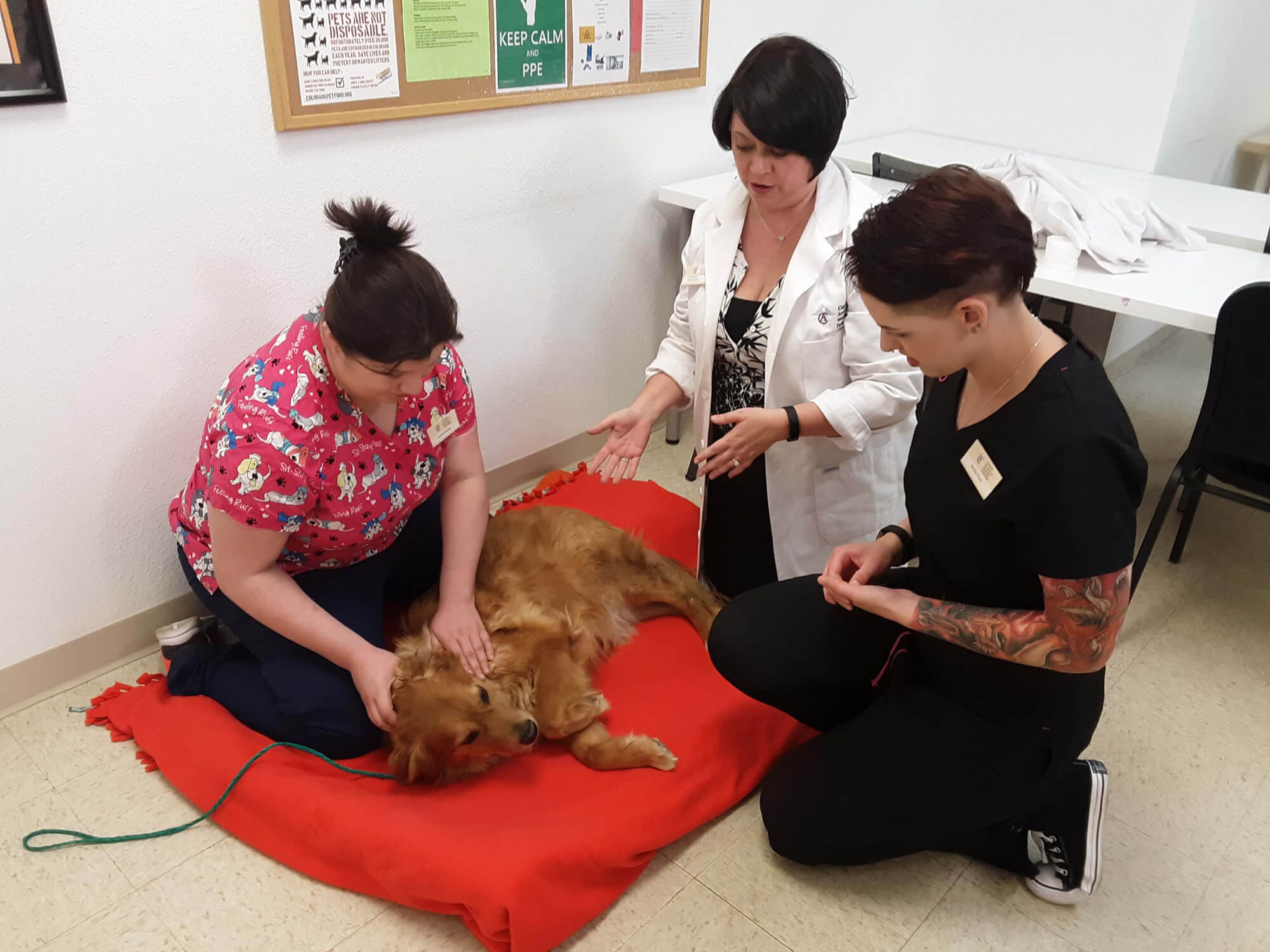
FAQS
What is the job growth for Vet Techs?
Veterinary technicians will likely see faster-than-average job growth, with employment rates increasing by 15% by 2030. Similarly, veterinary assistants can anticipate growing by 14%, whereas all other jobs in the United States are expected to grow by 8% during the same period.
What are the highest paying Veterinary Technician jobs?
If you pursue a veterinary technician specialization, you can expect to earn more money than a standard veterinary technician. Specialties need extra examination and certification, but the result is generally rewarding. If vet tech specializations are not your cup of tea, try a career in sales. Vet technicians that know how to close sales might earn hefty incentives.
Surgical Veterinary Technician
Surgical vet technicians work in a surgical suite with surgeons. They manage surgical veterinary instruments, maintain the operating area, and care for animal patients before and after an operation. Surgical vet techs must thoroughly grasp surgical techniques and wound care, which requires extensive education.
Equine Dental Technician
An equine dental technician works in a highly specialized sector that focuses on horse dental care and oral health. Animal dental care for equine dental technicians includes floating horses’ teeth to keep them fit and comfortable.
Veterinary Pharmaceutical Sales Representative
Veterinary pharmaceutical sales representatives sell medications and other preventative care commodities to certified veterinarians directly for use in their clinics. They must thoroughly understand all pharmaceutical goods in their inventory. Their compensation may increase due to commissions depending on how successful a sales representative is.
What is a Veterinary Research Technician?
Veterinary and animal research can be found at various facilities, with several job opportunities for a professional technician with broad knowledge of animal science and great technical skills. Most veterinary research is conducted at academic institutions, although positions are available in larger organizations such as government agencies.
A research technician does not plan nor design the research being conducted. Instead, they support the primary research scientist in carrying out the experiment and documenting the results.
What are non-clinical Veterinary Technician jobs?
A general practice veterinary technician is often employed in a small animal hospital or clinic. The clinical setting of the job type, however, is not for everyone. Non-clinical vet tech employment abounds for people who seek a less traditional career path.
Zoological Veterinary Technician
A highly trained zoological vet tech aids with veterinary work in a zoo. Zoo animals require extensive team-oriented patient care, and zoo vet techs support veterinarians with patient care, critical care services, exams, prescriptions, and other tasks within the zoo’s facilities.
Animal Health Inspector
An experienced veterinary technician with high-quality veterinary medicine background who works as an animal health inspector checks facilities to ensure that animals are appropriately housed and cared for. These facilities must adhere to strict requirements. Inspectors collaborate with vets to take care of things. They speak at hearings when facilities are found to have breached the law and assist in closing unlawful and non-compliant businesses.
What is the salary of a Lead Licensed Veterinary Technician in Colorado?
Credentialed veterinary technicians perform many of the specialized responsibilities related to animal health. Vet technicians with well-rounded technical skills in Colorado earn highly competitive wages with an hourly wage of $19.27, which is 8% higher than the national average. For example, vet techs in Denver are paid $20.01 per hour, while those in the Colorado Springs community are paid $18.17 per hour.
What are the non-profit employment options for Vet Techs?
Most vet techs are selfless and sympathetic to ensure exceptional veterinary care with their training. Unfortunately, these characteristics can sometimes result in a desire to work in the non-profit sector instead of the usual veterinary clinics. Fortunately, there are several non-profit opportunities available for vet techs.
Animal Shelter Vet Tech
Stray, orphaned, lost, and abandoned animals are commonly housed in animal shelters and require medical care. Vet techs assist veterinarians in caring for special-needs animals at animal shelters who might otherwise go untreated.
Animal Advocacy Vet Tech
Non-profit animal welfare groups rely on vet technicians with animal care experience. For example, the Humane Society and the ASPCA are two non-profit animal advocacy groups that employ veterinarians to assist in caring for animals in need and promote animal welfare. While many groups rely mainly on volunteers, some paid roles are available.
Wildlife Rehabilitator
Wildlife rehabilitators help wounded or orphaned animals get back on their feet. When they encounter an animal in need, veterinarians, humane groups, and animal control agents frequently contact wildlife rehabbers. In addition, wildlife rehabbers’ knowledge of veterinary medicine motivates them to look after injured animals and ensure they are comfortable with quality care.




